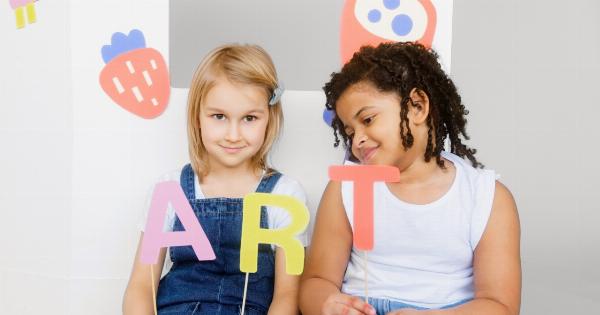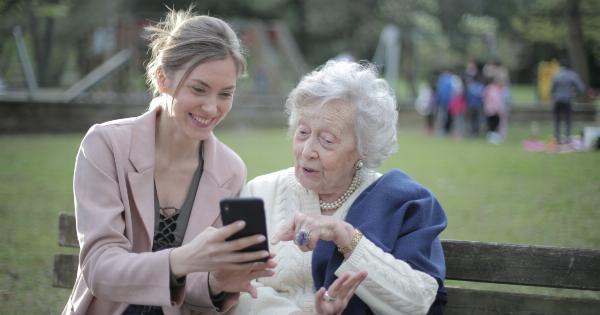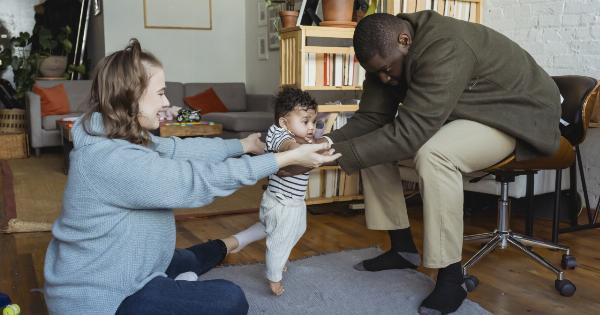Smiling is a universal language that transcends cultural barriers and connects people from all walks of life. It is a simple action that can brighten someone’s day, create positive energy, and even open doors to new friendships.
The act of smiling not only radiates happiness but also has numerous psychological and physiological benefits. This article will explore why smiling is the key to forming new friendships and the positive impact it has on building connections.
The Connection between Smiling and Happiness
There is a strong correlation between smiling and happiness. When we smile, our brain releases feel-good neurotransmitters such as dopamine, endorphins, and serotonin, which are responsible for creating positive emotions.
These neurotransmitters not only elevate our mood but also reduce stress and anxiety levels. When we are genuinely happy, it becomes easier to connect with others and establish meaningful friendships.
The Universal Language of Smiling
Smiling is a nonverbal form of communication that transcends language barriers. Regardless of cultural or linguistic differences, a smile is universally understood and appreciated.
When we smile at someone, it sends a message of friendliness, warmth, and approachability. It acts as an invitation for others to engage in conversation and establish a connection. In this way, smiling can serve as a catalyst for forming new friendships.
Breaking the Ice with a Smile
When entering new social situations or unfamiliar environments, the first step in building a friendship is often breaking the ice. A smile can make this process much easier. When we smile, we appear more open, welcoming, and receptive.
This makes others feel at ease and increases the likelihood of initiating a conversation. By smiling, we create a positive first impression and demonstrate our willingness to connect with others.
The Ripple Effect of Smiling
Smiling is contagious. When we see someone smiling, it triggers a natural response in our brain called mirroring. This means that we instinctively mimic the facial expressions of others, including their smiles.
When we smile at someone, it is highly likely that they will smile back. This creates a positive loop of smiling, where each smile reinforces the other. The ripple effect of smiling can uplift the mood of an entire room and foster a sense of unity and camaraderie.
The Genuine Smile: A Reflection of Authenticity
There are different types of smiles, but the most impactful is the genuine smile, known as the Duchenne smile.
Unlike forced or polite smiles, the Duchenne smile involves the contraction of both the zygomatic major muscle, which pulls up the corners of the mouth, and the orbicularis oculi muscle, which causes the eyes to crinkle. This authentic smile reflects genuine happiness and positivity, making it more attractive and trustworthy to others. By smiling genuinely, we show our authenticity and create a solid foundation for new friendships.
The Positive Energy of Smiling
The act of smiling generates positive energy that can be felt by those around us. When we smile, we radiate positivity, which has a magnetic effect on others. This positive energy can make us more approachable, likeable, and memorable.
It creates an aura of warmth that draws people towards us, increasing the chances of forming new friendships. Smiling not only benefits the person doing the smiling but also has a ripple effect on those who receive the smile.
Nonverbal Communication through Smiling
In any form of communication, only a small portion is conveyed through words. The majority of our communication happens nonverbally through facial expressions, body language, and tone of voice.
Smiling plays a significant role in nonverbal communication, as it conveys sincerity, friendliness, and interest. It can bridge gaps in conversation and facilitate a deeper connection. By using smiles as a nonverbal tool, we can build rapport with others and cultivate stronger friendships.
Smiling as an Ice Breaker
Smiling can be particularly helpful in breaking the ice during uncomfortable or awkward situations. In unfamiliar settings or when meeting new people, a smile can instantly create a positive atmosphere and diffuse tension.
It can serve as an ice breaker, providing a sense of comfort and opening the door for conversation. By putting others at ease, we encourage a more relaxed and natural interaction, which paves the way for new friendships to blossom.
The Impact of Smiling on Likeability
Research suggests that individuals who smile regularly are perceived as more likeable and approachable. When we smile, we become more attractive to others, both physically and in terms of personality.
People are naturally drawn to happy and positive individuals. By incorporating smiling into our daily interactions, we increase our overall likeability, making it easier to forge new connections and foster friendships.
Smiling as a Confidence Booster
Smiling not only affects how others perceive us but also impacts our self-confidence. When we smile, we feel more self-assured and in control of our emotions.
This boost in confidence can lead to a positive cycle, where increased confidence allows us to initiate conversations and engage in social interactions more effortlessly. By using smiling as a tool to enhance our self-confidence, we remove the barriers that may hinder the formation of new friendships.
The Long-lasting Effects of Smiling
Smiling not only has an immediate positive impact on building new friendships but also leaves a lasting impression. People generally remember those who have made them feel happy and appreciated.
By smiling consistently, we make ourselves more memorable to others. This can foster an ongoing relationship that extends beyond a casual encounter, evolving into a long-lasting friendship.
Conclusion
In the journey of life, forming new friendships is essential for personal growth, support, and happiness. Smiling serves as the key that unlocks the door to these meaningful connections.
It bridges communication gaps, breaks the ice, radiates positive energy, and establishes an atmosphere of approachability and authenticity. By harnessing the power of a smile, we can create a ripple effect of happiness, making the world a friendlier and more interconnected place.






























